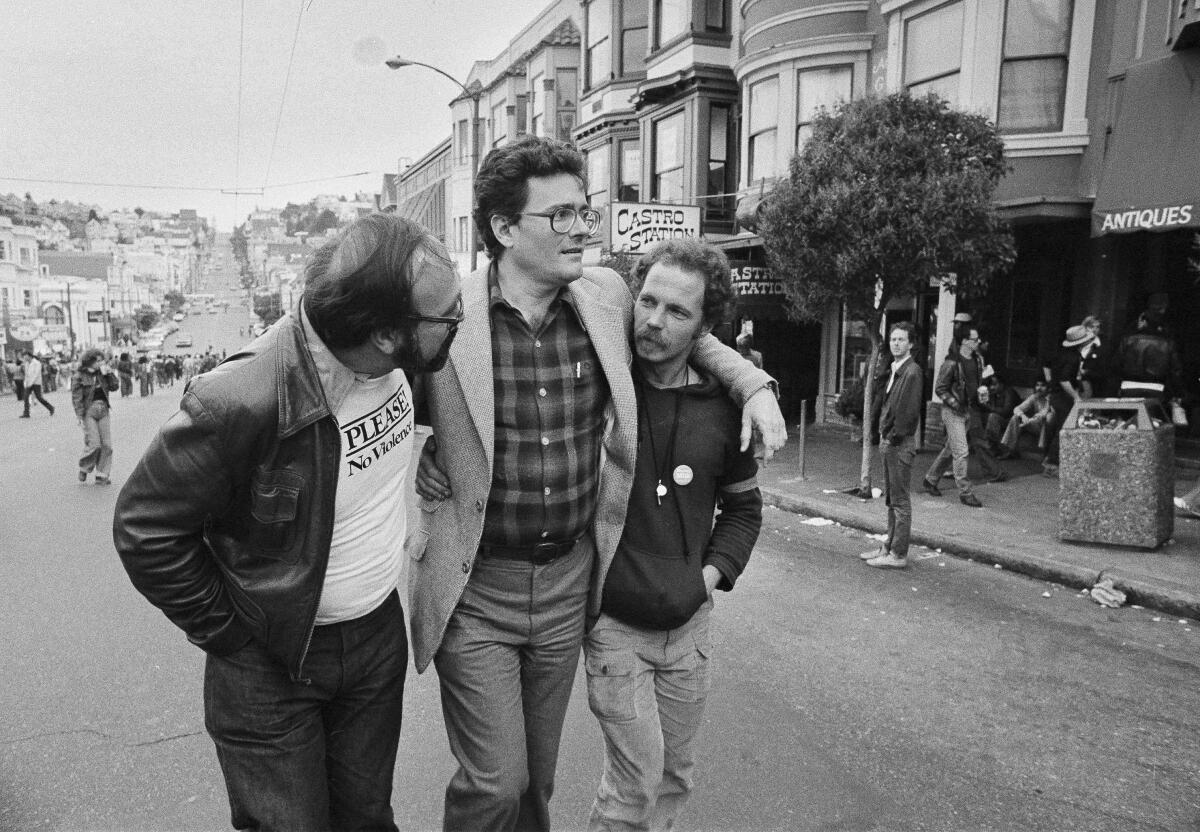Harry Britt, gay rights champion who succeeded San Francisco’s Harvey Milk, dies at 82

- Share via
SAN FRANCISCO — Harry Britt, who replaced assassinated San Francisco Supervisor Harvey Milk and over 14 years fought for progressive and gay rights measures, has died. He was 82.
Britt died Wednesday, the San Francisco Chronicle reported.
A onetime Methodist minister, Britt worked with Milk, California’s first openly gay elected official, on his campaigns. Britt was also openly gay and appointed to the board in 1979 following the 1978 fatal shooting of Milk and then-Mayor George Moscone by former Supervisor Dan White.
Britt wrote the nation’s first comprehensive domestic-partner legislation, which was passed more than a decade later, the Chronicle said.
He also fought against the AIDS epidemic and for expanding rent control, and increasing civilian oversight of police and limiting downtown growth. He left the Board of Supervisors in 1993.
“Harry was progressive before the word became vogue,” said Sen. Dianne Feinstein, who appointed Britt after she became mayor. “He was a powerful advocate for the gay community who never took no for an answer.”
The future USNS Harvey Milk, being built by General Dynamics NASSCO, has value and symbolism beyond its deckplates, advocates say.
As mayor, Feinstein vetoed Britt’s bid to allow domestic partners of city workers to collect benefits and to expand rent control to vacant apartments.
In 1987, Britt ran for Congress but lost to current House Speaker Nancy Pelosi, whom he accused of being too conservative.
On Wednesday, Pelosi called Britt “a leader who carried forth the mission of Harvey Milk while building his own beautiful legacy of progress for all people in our city.”
“Harry Britt was a pioneer in the LGBTQ community’s entry into electoral politics,” said state Sen. Scott Wiener (D-San Francisco). “Harry helped create political space for people like me to serve in elected office.”
More to Read
Start your day right
Sign up for Essential California for the L.A. Times biggest news, features and recommendations in your inbox six days a week.
You may occasionally receive promotional content from the Los Angeles Times.







